Time out of time, Portugal
I wasn’t happy to leave France and my friends and venture off into Portugal alone. I knew very little about Portugal, and all travel alone is initially scary. I had read that Portugal has the highest incidence of mortality on its highways of any country in Europe, for one thing. But Portugal has always intrigued me, so I was determined to plunge into it and see what transpired.
When I read descriptions of the cities I would visit— Lisbon and Porto, it was hard to feel enthusiastic. Cities are not the place where I am most comfortable. But they are the places where a culture puts itself on display. When I read descriptions, however, of the Algarve, the less populated coastal area at the southern extreme of Portugal, my spirits lifted and my curiosity was sparked.
I have the belief that if you travel and seek adventures, unforeseen, inconvenient and sometimes unpleasant things will happen to you. I tell myself if I can’t manage them with patience, humor and imagination, I should just stay home. I believe it is important to not even be surprised when these things happen, but to navigate through and spend most of my time counting my blessings.
Once I left the familiar terrain of France for unfamiliar Portugal, the likelihood of mishaps escalated. My first misstep forced me to rent a car in Porto, drive myself out of the city instead of flying, down the length of Portugal to the Algarve, on those highways I’d been led to believe were so treacherous. They turned out, midweek, to be sparsely populated, fast and perfectly maintained highways and I easily traversed the length of the country in a few hours. BUT, at one point the rental car appeared to refuse to go into reverse, and my GPS refused to recognize the address of my destination. A phone call resolved the reverse issue. I plugged in what I believed to be the coordinates of my remote accommodations. At one point my GPS told me I’d gone 30km too far. So I backtracked and made another stab at finding it.
It was frustrating but also astounding. At moments like this it’s important to remember there are hidden blessings. I found myself in the deepest Portuguese hinterlands where I doubt any tourist ever goes— ever. I was in deep farm country at some kind of edge of the world.
It was parched and many shades of brown. There were no grasses, only brown scrub. I passed a sunburned old man in dusty clothes trying to talk sense to a mule in the middle of a tiny village. The village had a phalanx of older gentlemen seated alongside the main street, watching, guarding and no doubt commenting on what went by (me, in a rental car, three or four times) . I passed fields of sheep and newborn lambs, and fields of sleek goats. The oldest pastures had stone walls for fences but seemingly nothing an animal could graze on.
The architecture in the farm villages was severe and eccentric. Pristine tidiness was clearly a strong cultural value.The houses were all painted spotless blinding white and trimmed in various bright colors. They all had decorative chimney pots, latticed with designs, and all clearly painted at the end of winter so they were as spotlessly white as if smoke had never passed through them. I drove by agave as big as my car. There were many beautiful ruined stone farm buildings, the masonry of a style specific to the region’s jagged faceted stones. The flat facets all faced the front, creating a smooth surface, and spaces between the large stones were filled with tiny stones.
I followed my GPS until it told me, confidently, to Go Off Road. My excitement was building, imagining how remote my accommodations must be. But when I did finally go off road the GPS choked— shut down. So, I stopped and called my landlord who gave me the name of a village near his home to plug into the GPS which happened to be 70km in the opposite direction. The sun was setting and the route was hairpin curves over multiple mountains. Anyone who drives mountain roads knows a mountain mile is like a dog year. I knew 70 km of mountain roads was going to feel more like 200 km of driving.
Along the way my reward was the stark and unspoiled landscape of Secret Portugal. On one hillside there were dozens of high tech wind turbines, while on a nearby hill there were ancient stone windmills in various stages of decay. Beige hills were dotted with pine, almond and cork trees. I passed an abandoned once-prosperous farmhouse, its front walls covered in azulejos (tile murals) depicting farm labor, all painted in blue on a white ground.
Just before dark I turned up in the right village. My landlord drove into town and led me up to the perfect getaway: a stone/stucco cottage up on a hillside,with yellow and white striped curtains, wonderful art, a private terrace and a view of the entire plain’s night lights sprawled at my feet. Thousands of warm yellow kitchen and bedroom lights sparkling in the land below, and diamond stars above by the millions were undisturbed by the villages’ lights or the moon. In the morning I woke to discover that the sea was just beyond those lights.
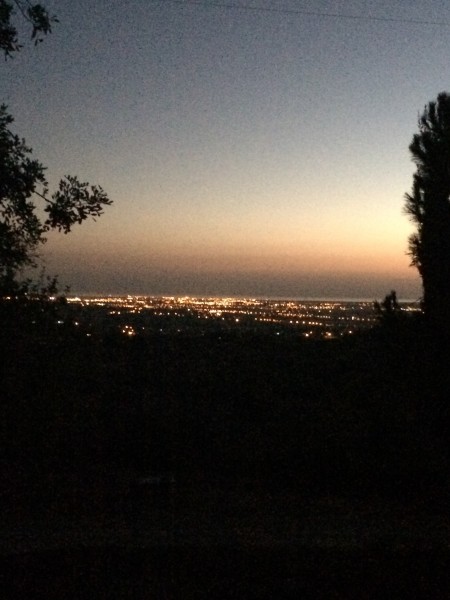
It hit me hard, in a good way— I realized I was truly happy. Not pretending to be happy, or waiting to be happy. It was a joyous moment. On that terrace the next day I made myself comfortable. Played some Brazilian jazz, lit some candles, opened the bottle of wine my host had provided and looked across the lights to the sea.
Being out of the city I found myself painting and writing. In my sleep one night I wrote a poem and woke up to its words. It was enough to just sit on that terrace perch, above the sea and the towns and watch the sun cross the sky.
Every day I would choose a little coastal village— the smaller the better— and drive there to investigate. I was less than 200 miles from north Africa, and this region was a place where many cultures crossed paths. The first village I visited had its stark white houses with eye-ache blue trim against the brilliant blue sky. I climbed down a cliff to touch the water and was captivated by the succulents and sea friendly plants that grew right up to its edge.
The second village had Moorish and medieval ruins. The only wifi available to a traveler in town was at the library. I stopped in the supermercado for provisions and settled on a tame choice— chicken, because it was coated in fiery red pepper and the sign indicated it was locally raised with some degree of pride. Once cooked it brought back the chicken of my childhood, raised by my grandparents on our farm. It was anything but ordinary. I spent the afternoon painting the plants on my terrace and thanks to the blessings of technology, being in contact with all the people I love the most.
Home is precious beyond measure, but I wrapped that evening in a cloak of memory and stored it up to refire my soul when I’m too old to explore anymore. Cypress trees/tiny far away lights/palm fronds rattling in an end of summer breeze/smell of anise, the sense of power, joy, connection, saved to be unwrapped when I am losing my footing on this earth, to remind me that I am earth’s child and the whole earth has been my lavish, generous, stunning home.


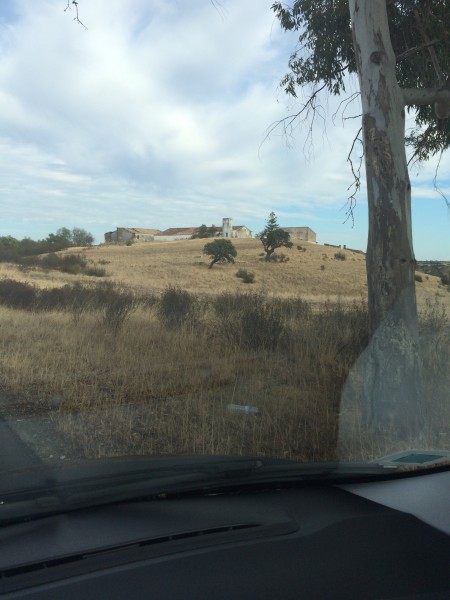
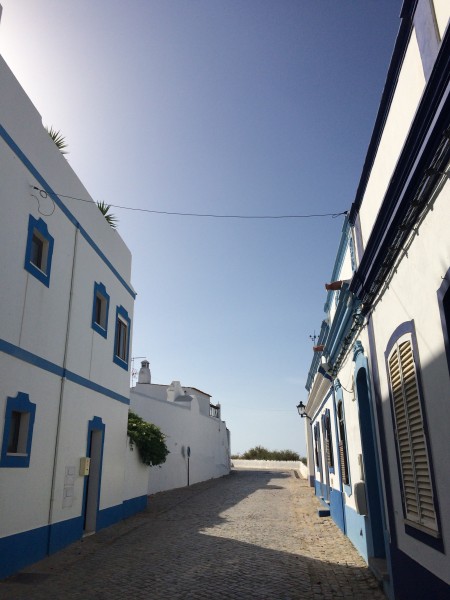
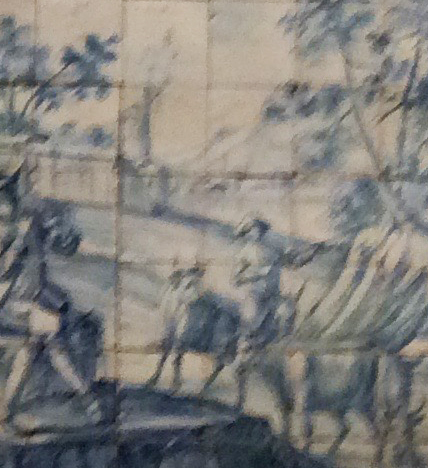
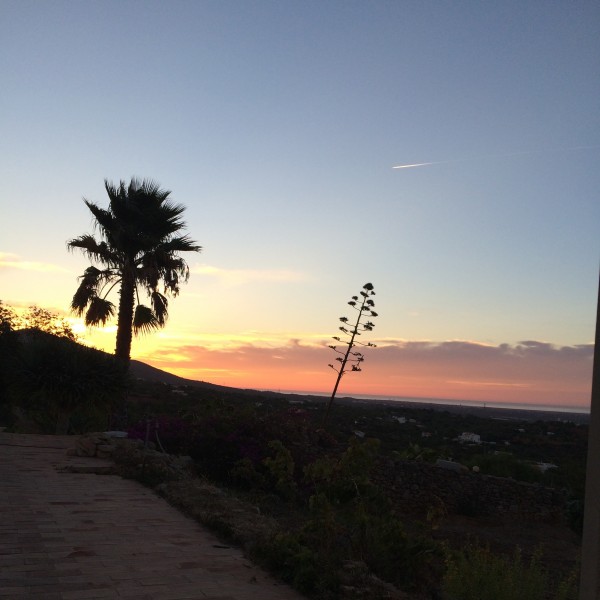
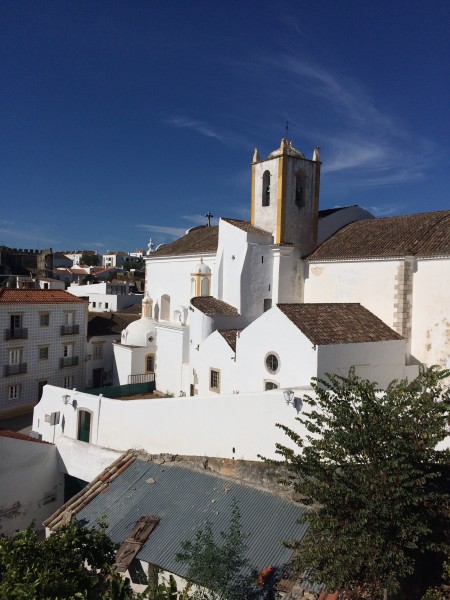
Recent Comments